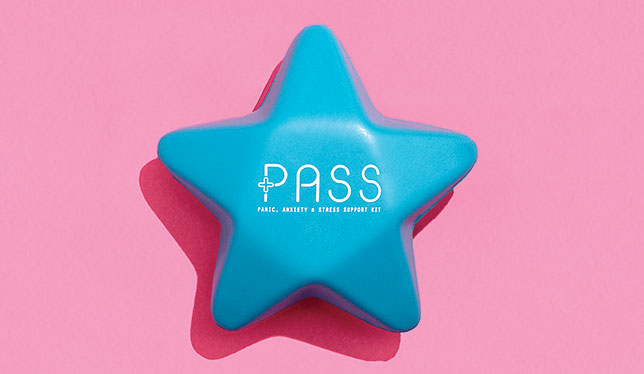
First aid kits are a convenient and quick way to deal with minor injuries. Tina Chan, who is working towards a health studies degree at the University of Waterloo, had the idea to develop a similar resource to address stress and anxiety. She successfully pitched her idea, dubbed the PASS kit, at the Big Ideas Challenge event held in March 2015 at GreenHouse, a live-in incubator focused on social innovation at St. Paul’s University College on the U of Waterloo campus. “First aid kits address trauma emergencies until further help comes, if needed. We noticed an absence of a similar aid for mental health issues, where a tool to help guide the person towards healthy coping mechanisms would be beneficial until professional help is available,” Ms. Chan explains. She and her team used the $1,500 awarded from the GreenHouse competition to conduct a pilot study of the kits and to produce them for sale starting this past February.
Ms. Chan and her team brainstormed items they felt would be useful in the kits. They include a stress-relieving squeeze toy, sleep mask, chewing gum, ear plugs and a set of flashcards called Cards for Good Thoughts. The cards contain information that falls into four categories: advice, challenges, mindfulness questions and relaxation techniques. The advice category offers suggestions for things to do when you’re feeling overwhelmed, such as taking a breath of fresh air or a sip of water. Challenge cards prompt the user to perform an activity, like clearing desk space, because small tasks can lead to improvements in mood. Mindfulness questions ask readers to take a moment to become grounded by calmly observing their surroundings. The relaxation technique cards feature infographics showing exercises like progressive muscle relaxation to help the user to de-stress.
“As a millennial, I am used to seeing short snippets of information such as tweets and chat messages,” says Ms. Chan. “The direct and concise messages on the Cards for Good Thoughts are easier to digest than traditional advice in pamphlets, which may run up to 500 words or more.”
Ms. Chan says the kits should also help start the conversation around mental health. “It is important for my generation to build and develop the skills to manage stress in order to surmount challenges in the workplace upon graduation,” she says. “The PASS kit encourages users to be attentive to their mental health, much like their physical health.”
Ms. Chan says the kits have been garnering a lot of interest. “We are not only receiving requests for PASS kits from academic institutions, but from foster homes, social workers, psychotherapists, workplaces and even government agencies internationally,” she says. “Right now we are developing our production process to meet that demand and seeking sponsors who can help us bring PASS kits to those who need them most.”
Never underestimate the positive, healing, decompressive power of humor for the Cards for Good Thoughts.
Hi,
That is great news!, It will really help in reducing Heart Attacks, the most common among people facing stress.